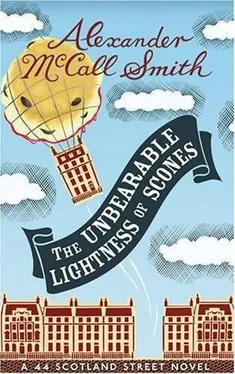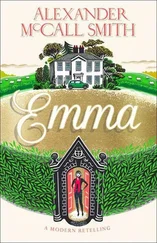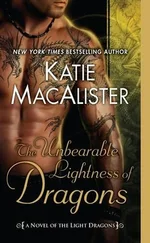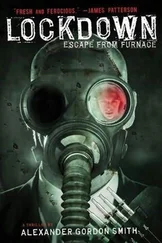Alexander Smith - Unbearable Lightness of Scones
Здесь есть возможность читать онлайн «Alexander Smith - Unbearable Lightness of Scones» весь текст электронной книги совершенно бесплатно (целиком полную версию без сокращений). В некоторых случаях можно слушать аудио, скачать через торрент в формате fb2 и присутствует краткое содержание. Жанр: Триллер, на английском языке. Описание произведения, (предисловие) а так же отзывы посетителей доступны на портале библиотеки ЛибКат.
- Название:Unbearable Lightness of Scones
- Автор:
- Жанр:
- Год:неизвестен
- ISBN:нет данных
- Рейтинг книги:4 / 5. Голосов: 1
-
Избранное:Добавить в избранное
- Отзывы:
-
Ваша оценка:
- 80
- 1
- 2
- 3
- 4
- 5
Unbearable Lightness of Scones: краткое содержание, описание и аннотация
Предлагаем к чтению аннотацию, описание, краткое содержание или предисловие (зависит от того, что написал сам автор книги «Unbearable Lightness of Scones»). Если вы не нашли необходимую информацию о книге — напишите в комментариях, мы постараемся отыскать её.
Unbearable Lightness of Scones — читать онлайн бесплатно полную книгу (весь текст) целиком
Ниже представлен текст книги, разбитый по страницам. Система сохранения места последней прочитанной страницы, позволяет с удобством читать онлайн бесплатно книгу «Unbearable Lightness of Scones», без необходимости каждый раз заново искать на чём Вы остановились. Поставьте закладку, и сможете в любой момент перейти на страницу, на которой закончили чтение.
Интервал:
Закладка:
“Well,” began Big Lou, “after Robbie and the Pretender left the Braid Hills Hotel that day, they drove up north on the Stirling motorway. Robbie phoned me that evening from that hotel up in Glencoe, you know, the one in the middle of nowhere. They planned to stay there that night. He phoned from the bar.”
“The Pretender likes a drink, doesn’t he?”
“Yes,” said Big Lou. “And when Robbie phoned he said that there had just been a major row in the bar. Apparently the Pretender had started to create a bit of a fuss over some remark that the barman passed as to his outfit. He threw a glass of whisky at him and was chucked out for his pains. So they had to move on. It was misty and Robbie was worried about riding the motorbike in the dark because the lights didn’t work very well.”
Matthew’s eyes widened. “Of course, he was always talking about being out in the heather, like his illustrious predecessor.”
“Aye,” said Big Lou bitterly. “Always talking more or less sums it up. Anyway, they eventually got to Fort William and Robbie suggested that they stay there and the Pretender said that he did not want to stay anywhere where there were likely to be troops.”
Matthew burst out laughing. “Well, really! What century does he think he’s in? And, anyway, there are no troops in Fort William. There’s the mountain rescue people, I suppose, but that’s about it.”
“I think that Robbie had to put his foot down,” continued Big Lou. “So they stayed there overnight in some bed and breakfast. The owner wasn’t pleased to be woken up, I gather, but took them in anyway. But they were thrown out the next morning when the Pretender tried to recruit the owner. He tried to get him to rise up against the English. But the owner was English himself and did not take too well to this.
“So they went on. And eventually they got up to Skye and caught the Uig Ferry over to North Uist.”
Matthew was listening attentively. “To meet up with Flora Macdonald?”
Big Lou shrugged. “I don’t know what they thought they were doing. But that’s where he wanted to be. Robbie telephoned me from Benbecula, which is the last I heard from him. He said that the Pretender had met up with somebody or other and had got drunk with him. He was trying to sober him up. And then the battery on Robbie’s mobile ran out and that was it. They were on their own.”
“So they’re still there?” Matthew asked. “Still on Benbecula?”
Big Lou shook her head. “No. They were probably there for a few days. That was Thursday I heard that, and that was when I heard from him last.” And she reached under the counter for a half page cut from a newspaper. She unfolded the clipping and laid it on the counter so that Matthew could read it.
He picked up the newspaper article. Above the text was a photograph of a smallish rowing boat being towed behind what looked like a rescue lifeboat. There were two figures in the rowing boat: two women, both wearing rather old-fashioned bonnets. The face of the lifeboat’s skipper could be made out quite clearly; he was smiling.
He read out loud the text below. “Dramatic rescue in the Minch,” the article said. “The Uig lifeboat was called out yesterday to deal with a small craft which had been spotted in trouble in the Minch. Reports had reached Uig of a rowing boat crewed by what appeared to be two transvestites getting into difficulty and moving in circles in increasingly high seas. The lifeboat’s efforts were at first resisted but eventually the occupants of the boat were persuaded to accept a line and they were brought in safely to Uig.
“The two occupants of the boat were interviewed by police on landing and a doctor was called. The doctor subsequently detained two men under the Mental Health (Scotland) Act and the two have been taken to Glasgow for further psychiatric examination. The crew of the lifeboat declined to go into further details, but were reported to have been amused by what they regard as a highly unusual rescue. ‘It reminds me very strongly of something,’ said the lifeboat skipper. ‘But I can’t quite put my finger on it.’”
Matthew stopped reading. “Oh dear, Lou. That’s not so good is it? Have you heard from Robbie since they… since they took him away?”
Big Lou shook her head. “I haven’t, Matthew,” she said quietly. “And you know something? I don’t want to hear from him. I’ve decided that this is the end. I’ve put up with all this Jacobite business for long enough because I realised how important it was to him. But now I can’t take any more of it. I’ve had it up to here. I really have.”
She paused, lowering her voice. “And here’s another thing, Matthew: I think the Hanoverians were more democratic. They didn’t have that divine right of kings obsession that the Stuarts had. They were simply better.”
Matthew reached out and touched her lightly on the arm. What words of comfort could he provide? What could he say about Robbie, and the man before, and the man before that? Every one of Big Lou’s men had been hopeless in one way or another. She deserved better – anybody who knew her would agree on that. But love, it seemed, was not a matter of desert. It was random and unpredictable. Unworthy men were taken on by good women, and the other way round. There was no justice in the way in which the patterns of love arranged themselves.
He would have liked to have said to Big Lou: “Don’t worry, Lou. The next one will be better.” But he could not say that, because it would not be true. So they stood there, neither saying anything, and then, after a few minutes, Matthew looked at his watch and told her that it was time for him to get back to the gallery.
91. Fathers and Sons
Dr. Roger Sinclair, clinical psychologist, inheritor of the mantle of the recently enchaired Professor Hugo Fairbairn, was standing close to the large sash window of his consulting room in Queen Street. Outside, above the distant hills of Fife, wisps of cloud played chase across the sky. He watched these through the glass; the sky here was so different, he thought, from that other sky under which he had grown up. This one was constantly changing, was washed out; at times covered with curtains of rain, at times made of an attenuated blue that was gentle, like the surface of a milky sea; the sky of his boyhood had been high, and wide, empty and intensely blue, like lapis lazuli; filled with light too; a great theatre for the sun.
He took a step forward, so that his nose almost touched the glass. Somebody had said to him once that in France window-shopping was called lèche vitrine , the licking of the window; a wonderful expression that somehow conveyed the longing felt by those who wanted the goods within but could not buy them. Orality, he thought, of course it was orality: the infant within wishes to incorporate the world through his mouth; to swallow the goods in the window.
He noticed that his breath had created a small patch of condensation on the glass, an island shape, dense and opaque in the middle, fainter at the edge; the rest of the glass was the sea, liquid, pure. He stood back an inch or two and saw that the island was exactly the shape of Australia – home – and using the tip of his little finger, he traced a line in the moisture, a route from Brisbane to Melbourne. My journey, he thought, or the start of it.
He had been born in Brisbane, and had spent his childhood in Toowoomba, where his father had been the accountant of a large firm of cattle exporters. His father’s face came to him now; his father who had started his own voyage in Kelso and who had always spoken of it to his son as if it were some sort of Eden, a place where everything was somehow more valid than the world of the smoky office from which he looked out onto the great cattle pens with patient victims, their attendant clouds of flies. His father had hated the expression “ten pound Pom” and had said: “If they want to call me a ten pound Scot, I’m happy with that, but don’t call me a ten pound Pom.” As a small boy Roger had been puzzled. Who had paid ten pounds for his father? Was that all that he was worth?
Читать дальшеИнтервал:
Закладка:
Похожие книги на «Unbearable Lightness of Scones»
Представляем Вашему вниманию похожие книги на «Unbearable Lightness of Scones» списком для выбора. Мы отобрали схожую по названию и смыслу литературу в надежде предоставить читателям больше вариантов отыскать новые, интересные, ещё непрочитанные произведения.
Обсуждение, отзывы о книге «Unbearable Lightness of Scones» и просто собственные мнения читателей. Оставьте ваши комментарии, напишите, что Вы думаете о произведении, его смысле или главных героях. Укажите что конкретно понравилось, а что нет, и почему Вы так считаете.












